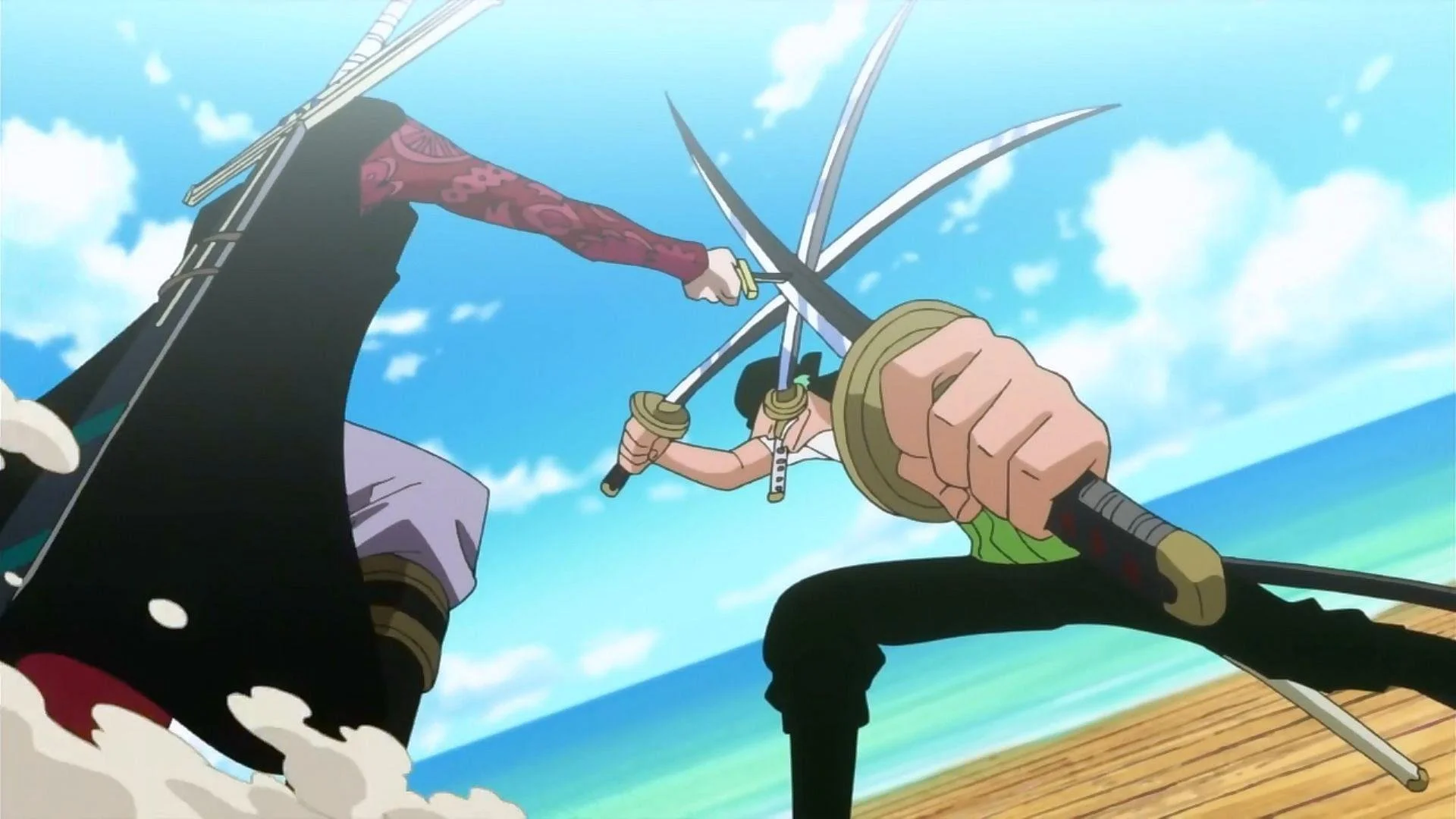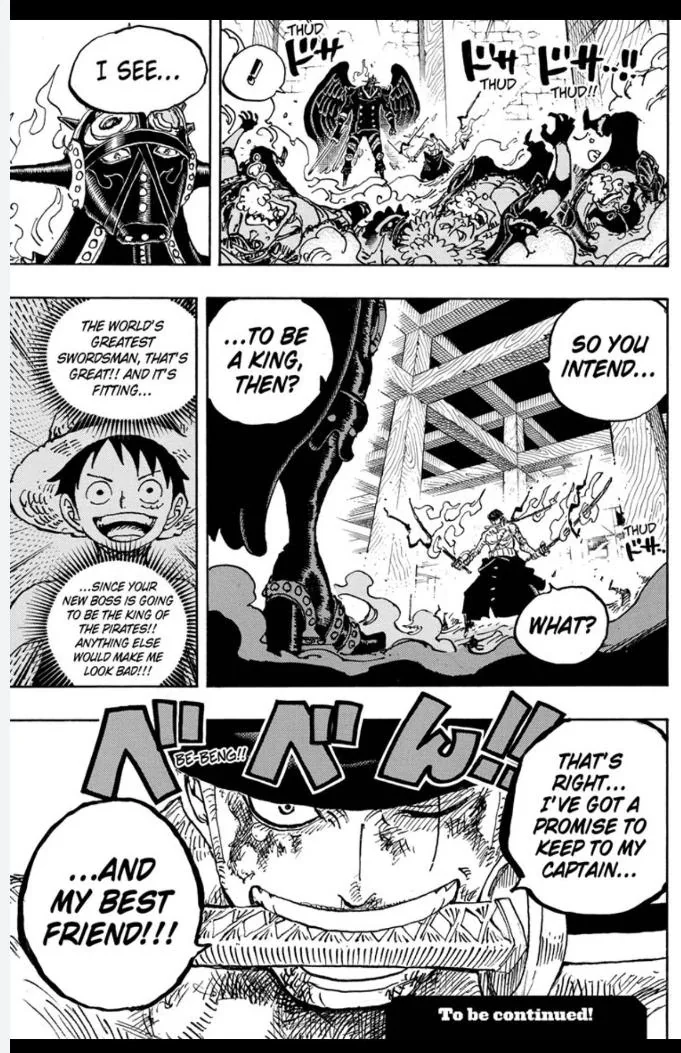What I Learned About Coaching from One Piece
What a crew!
This is a tale of a ragtag group of friends called the Straw Hat Pirates trying to find a legendary treasure.
It starts simple before exploring themes of freedom, totalitarianism and revolution, found family, historical erasure and the control of knowledge, and so much more.
One Piece been in circulation since 1997. During that time, it won a Guinness World Record for “most copies published for the same comic book series by a single author.”
I love this story. It’s funny, epic, and often heartbreaking.
But more than anything else, I love it because its characters are so vividly realized that, after reading for a while, you can easily imagine how they would react to real-world situations.
Napoleon Hill wrote Think and Grow Rich in 1937.
Updated from beyond the grave!
There, he popularized the Invisible Counselors technique. He envisions hosting nightly meetings with famous figures like Lincoln, Edison, or Napoleon to hear advice and gain perspective.
This would be a great DND group.
I sometimes do that with One Piece characters.
Is that silly? Yeah.
But it isn’t sillier than any other kind of deep visualization (a well-researched principle). You imagine stories of success — thinking about the sights, sounds, smells, conversations — to better believe that they’ll come true.
I’d like to share imagined interactions with my fictional invisible counselors that help inform my coaching practice.
If you’ve never seen One Piece, be wary of spoilers.
Disciples of the Dark King
Silvers Rayleigh is one of the most successful pirates in the story. He was the pirate king’s first mate.
I can’t pull off that beard…yet.
He’s exceptionally good at manipulating Haki, a ki-style energy that lets normal humans defend themselves, predict the future, or mentally overwhelm opponents.
Rayleigh is introduced at a very low ebb — his captain is long dead, he’s letting himself be captured by far weaker enemies, and he’s drinking himself into stupors.
When he meets the heroes, he’s inspired to take action. He breaks free of captivity, teaches them the ways of Haki, and defends them from far more challenging opponents until they’re ready to stand up for themselves.
His mentorship style is hands-on, challenging, and activity-based. He’s action-oriented, not abstract, to make sure they learn his teachings.
Rayleigh is exceptionally humble for a pirate of his stature. He doesn’t demand credit. He acknowledges when he’d be unable to defeat more frightening foes. But he also knows about the power of his reputation, so he leverages it as necessary to help his students.
Keeping it real.
I’ve gone through depressive periods. They tend to coincide with times of isolation. I, like Rayleigh, find renewed purpose in mentorship and connection.
Some of my students — the 2023 national mock trial champions — got me a little Rayleigh statue. They thought I matched his teaching style. I connected with him more than they probably realized.
Sharpening Your Blade
Zoro (yes, like the masked vigilante) is a swordsman. His childhood friend, who surpassed his skill, passed away at a young age.
Big moves for an elementary schooler.
Zoro has promised to become the greatest swordsman in the world to keep her memory alive.
This leads him to clash with the current greatest swordsman, “Hawk-Eye” Mihawk.
Nice guy.
When we meet him, Mihawk is bored. He’s been the best at swordplay for a long time. He casually mows down scores of enemies. When Zoro challenges him, he uses a small dagger because “he doesn’t hunt rabbits with a cannon.”
“Beware of an old man in a profession where men die young.”
Zoro is far weaker than Mihawk. But his resolve impresses the older man. Mihawk uses his black blade, the finest sword in the world, to meet Zoro’s resolve. He still effortlessly wins, cutting Zoro down.
But he leaves Zoro alive and challenges the upstart to one day surpass him.
Hundreds of chapters later, Zoro pursues Mihawk personally and asks him to serve as a mentor. Mihawk, amused, agrees. They spend years training, each knowing that the student’s ultimate goal is to defeat the master.
Sometimes, you need to use negative reinforcement.
I am both of these characters.
When I do something, I don’t do it a LITTLE.
I joined speech and debate with the goal of becoming the best Impromptu speaker in the state of California.
I succeeded. But I challenged every one of my students to earn their own state titles. The ones who had the most resolve (and a little luck) did just that.
One of them won the state title during their freshman year of high school, getting perfect ranks in the final round (surpassing my own record). I was very proud.
And I resolved to get even better at Impromptu speaking, winning season-long championships in the Professional Speech and Debate Association.
I also joined with the goal of winning a debate state championship.
I failed.
But I returned to debate as an adult, setting the highest all-time season-long national championship in the professional division of the International Public Debate Association.
I’m not ashamed to admit that this prospect — re-entering the world of competitions — was scary.
To put yourself out there means risking loss and embarrassment. I have coached students to over 1,600 championships—if I can’t still win titles of my own, what does that make me? The ultimate, “He can’t do it, so he teaches it” archetype? I had nightmares of getting second place.
I pushed past this fear.
Zoro never feared defeat — only dishonor.
Never back down!
And Mihawk accepted challenges from his juniors, even with his reputation on the line.
Failure
I recently wrote about how I was inspired by Tony DeRosa, the best barbershopper of all time. He’s won five international singing championships across decades — each time, with different groups. (He’s the ‘cowardly lion’ in the below video.)
But he’s lost more times than he’s won.
His 1992 group took 2nd, then 1st.
His 2000 group took 2nd, then 1st.
His 2007 group took 2nd, 2nd, and 2nd before 1st.
His 2017 group took 5th, 5th, 4th, 3rd, 3rd, 3rd, and finally 1st.
His 2024 group took 4th, then 1st.
Imagine being a returning three-time champ who keeps stalling out at 3rd place.
You would have to love the game — the art of barbershop — to keep going. He clearly does.
Rayleigh thrives when mentoring the next generation.
Mihawk believes in the right of every swordsman to prove their word.
Zoro will do anything to fulfill his promise.
One Piece keeps reminding me that competitive speaking can never be about being perfect.
It’s about showing up. Staying grounded. Getting sharper alongside your students.
When I walk into a classroom or a courtroom, that’s what I carry: push hard, respect the fight in front of you, and love the work enough to keep showing up.
Which characters are you in ‘conversation’ with?










